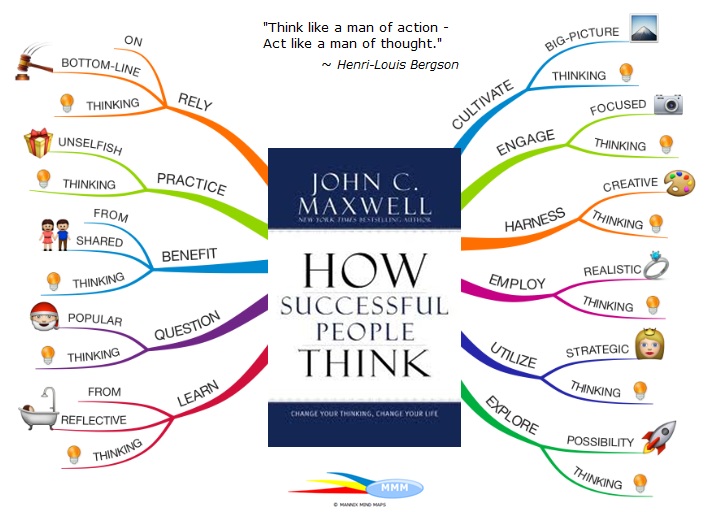 We need to understand that people prefer to think, make decisions, and act in ways that are natural and convenient for them. They like to feel that any decision can be made and implemented in an easy, manageable, and acceptable manner and that it will be the "best way" to promote and secure their own success and the success of both the enterprise and customer. We also need to understand why people choose to not "do the right thing" —why they choose to pursue something that is less effective —or even the wrong thing. There are many reasons for such undesirable behavior. For example, people who do the wrong thing may find that doing what is right is too difficult and it is not natural. They may perceive that it is not "the way we do things here" or that it is counter to culture, practices, and peer acceptance. They may lack the motivation to exert themselves or may find that the psychological cost is too high. They may think that their personal goals are better served by following a different path, or they may not see any merit in doing the right thing. Or they may not possess the requisite knowledge to do the right thing.
We need to understand that people prefer to think, make decisions, and act in ways that are natural and convenient for them. They like to feel that any decision can be made and implemented in an easy, manageable, and acceptable manner and that it will be the "best way" to promote and secure their own success and the success of both the enterprise and customer. We also need to understand why people choose to not "do the right thing" —why they choose to pursue something that is less effective —or even the wrong thing. There are many reasons for such undesirable behavior. For example, people who do the wrong thing may find that doing what is right is too difficult and it is not natural. They may perceive that it is not "the way we do things here" or that it is counter to culture, practices, and peer acceptance. They may lack the motivation to exert themselves or may find that the psychological cost is too high. They may think that their personal goals are better served by following a different path, or they may not see any merit in doing the right thing. Or they may not possess the requisite knowledge to do the right thing.
As we pursue our objective of identifying how we might support successful personal and enterprise behavior, we need to identify counterproductive misconceptions and how they can be addressed. During the last several decades, most of us may indeed have misunderstood how people utilize and deal with knowledge to prepare themselves and to deliver competent work. We have misconceptions as to how people learn and build knowledge, and remember, reason, and apply knowledge to decide and carry out actions. In addition, we often do not have a clear understanding of how knowledge relates to performance and how different working conditions affect the knowledge related effectiveness of work. We also may not realize the depth of knowledge required to deliver complex work. Some of these misconceptions clearly have resulted from our efforts to explain the functions of the human mind in terms of simple information processing or mind-as-machine models —only from the machinery of the brain perspectives. In reality, our brains—our minds—are much more complex and perform many functions of which we have little understanding. As a result, our narrow perspective of how the human mind needs to be treated has led to problems. Many of our traditional practices and methods used to prepare and support workers with education and systems are less effective than they should be. Our work environments may also be found wanting by providing conditions that hamper the effective use of the available knowledge and intellectual capital (IC) assets. Major developments that cause us to revise our understandings include the following.
Most people remember concepts and "stories" easier than they remember "facts." Businesses and educational institutions often prepare people by providing theoretical education and training that emphasize facts, details, and relatively mechanistic and concrete aspects of "this is how you do it" and "these are the facts." General understanding and underlying rationales are not provided as often as needed: the focus is on telling "how" and "what," not on "why." The ability to perform under nonstandard conditions and deal competently with complex work relies mostly on utilizing mental models at different levels of abstraction rather than on piecing together new approaches from basic principles and facts. Education that provides integration of many aspects of practical situations through hands-on and laboratory work, or even storytelling, alleviates this problem to some extent.2 As work becomes more complex, relevant stories may be encoded as mental models and provide procedural meta knowledge and generic abstractions as will be explained.
Decisions are nonconscious to a larger extent than we realized earlier. When possible, people attempt to make decisions by repeating previous experiences —by doing what they know how to do and what appears most natural to them. The majority of daily decisions are based on utilizing tacit mental models to handle situations by "covert activation of biases related to previous emotional experiences of comparable situations." A large aspect of competence relies on this behavior and requires extensive, well-developed libraries of mental reference models.
People have different cognitive styles and "intelligences" When groups of people are educated and trained or provided with cognitive work supports based on a single model of cognitive functioning, the results are often disappointing across the enterprise. The problem is that people have differing abilities to assimilate and utilize provided information. To the extent practical, we must provide different modes of communication or staff positions with people whose cognitive style matches the type of work to be performed
Stress impairs retrieval from long-term memory. People who are hurried, perform under pressure, feel threatened, uncomfortable, or angry, are constantly interrupted, or work in noisy environments experience a reduced ability to use all they know in their efforts to deliver work. People who are content, feel motivated, happy and relaxed, and work in pleasant and effective environments generally are able to deliver better quality work, and although they appear to be in stressful situations, they are able to work fast and to deeply engage themselves in what they do.
The impact of example behaviors and role models is more important than we recognize from our normal practices. Many leaders tend to minimize communication between subordinates and rank-and-file. They often provide terse and ineffective communications to direct work and describe how they wish their employees to behave and perform. They may not act as role models or provide living examples. By neglecting to provide conceptual and explicit guidance, they make it difficult for other people to act in the desired manner since they have not understood in-depth what is desired. People are uncertain about how to operationalize the desired behaviors —they cannot copy example behavior since that is missing. People are not provided with motivation to copy their leaders' behaviors since those are behaviors they do not respect; they do not see that their leaders find it necessary to act in the desired way. Without leaders acting as role models, new criteria for performance and behavior do not become part of enterprise culture. As a result, people do not understand or feel motivated to act as the enterprise desires — although that would be most effective and valuable for themselves, the enterprise, and other stakeholders.
Knowledge required to deliver complex work may require greater mental capacities than most people can provide. The complexity of modern work often requires greater knowledge than a single person has the opportunity to acquire. (Examples include delivering modern medical services, solving complex industrial and business problems, and creating social and economic legislation.) Such tasks must be performed by collaborative teams whose members are included to provide complementary expertise, and their work styles must become integrated with general operations practices.
Knowledge and information are fundamentally different in both nature and function. The purpose of information is proper description, whereas the purpose of knowledge is effective action. Knowledge and information are not part of a continuum and need to be managed separately and diligently by separate disciplines.
We can improve how we prepare and support knowledge workers at all levels, make it easier for people to become motivated, and understand how to perform their work and manage knowledge better by focusing deliberately and separately on knowledge management and information management.



![Why Female Entrepreneurialism Is on the Increase [Infographic]](https://lerablog.org/wp-content/plugins/wp-thumbie/timthumb.php?src=http://lerablog.org/wp-content/uploads/2014/05/women-entrepreneurs-2.png&w=300&h=140&zc=1)



